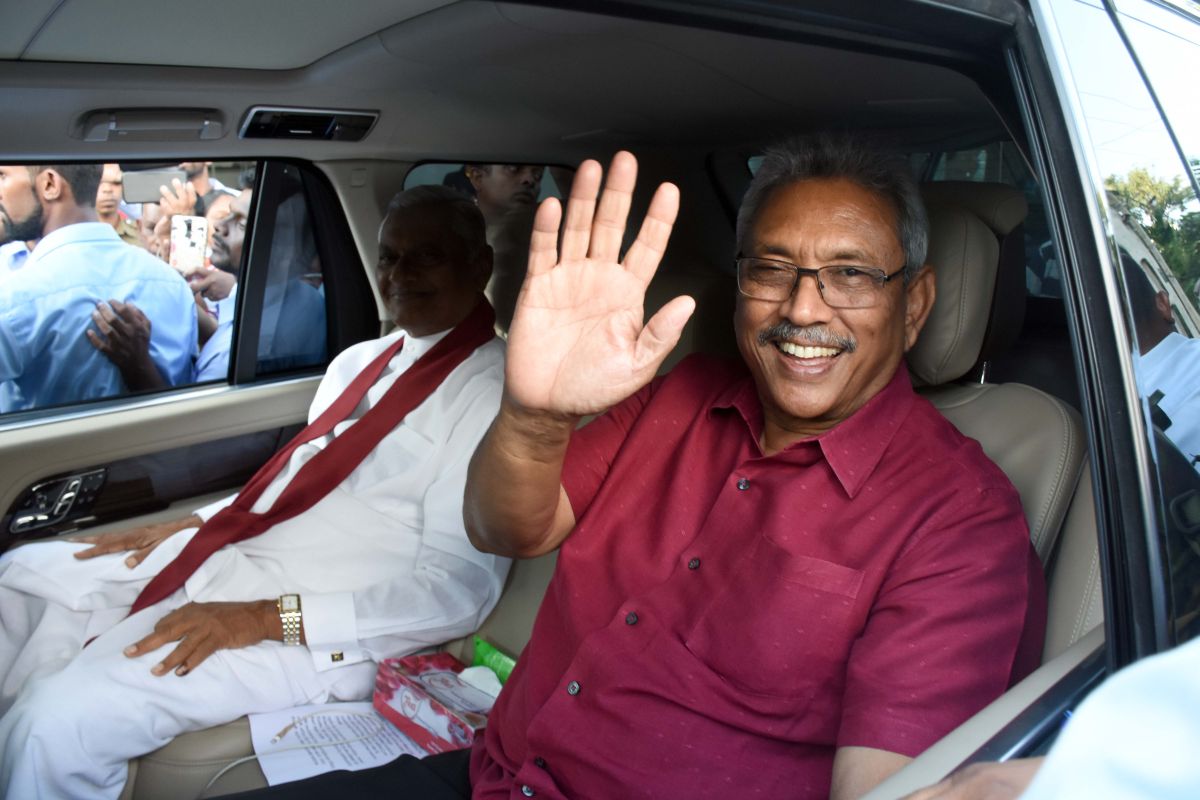Handloom fashion show at Bharat Tex 2025 attracts buyers from Europe, Australia
The event was organised at the amphitheatre in Bharat Mandapam as part of the Bharat Tex 2025 exhibition being held here from February 14-16.
In Sri Lanka, President Gotabaya Rajapaksa has become that nightmare for its people, just two years after he was elected as head of state, a feat not easily achieved.

Gotabaya Rajapaksa (Photo: IANS)
It is not unknown in history that a single ruler was the cause of a nation’s downfall, the obvious case in modern times being Adolf Hitler ~ an elected leader ~ one of the best known among a collection of reviled names scattered throughout history as examples of the evil that power can degenerate into. In each case, they mercifully failed to prevail in the end. In Sri Lanka, President Gotabaya Rajapaksa has become that nightmare for its people, just two years after he was elected as head of state, a feat not easily achieved.
Before he resigned, Prime Minister Mahinda Rajapaksa, miffed at his brother’s attempts to scapegoat him for the country’s increasing instability, brought in thousands of his supporters from the provinces to the city on May 9, proclaiming their demand for his continuance in office. They rioted violently in the streets, clashing with the original, peaceful protestors, smashing the temporary structures that those young people had erected in protest sites in front of the PM’s residence and at the Galle Face Green. They succeeded in putting some of them in hospital. The police intervened with tear gas and water cannon to stop the marauding hordes of MR supporters from their scorched-earth intentions at Galle Face Green and beat them back for now. The peaceful protest at GotaGoGama was finally invaded, not by law enforcement but by provincial politicians of the MR camp with their supporters. Escalation of the situation is now inevitable. The president owes it to the people to prevent this emerging situation from deteriorating into further blood-letting in a land that has already seen far too much of it. He, and only he, can end this nightmare, instead of continuing to embody it. Meanwhile, the parties of the parliamentary opposition need a deep-going reckoning to understand why some of them were rejected violently at the protest sites, and some welcomed, as they attempted to solidarize with those young people under attack from MR supporters. As the aspirant government, they need to self-examine and re-position fast, just as the protesters must not descend into anarchy by rejecting even those on their side in parliament.
Advertisement
The predictable trajectory into an economic abyss at Gotabaya Rajapaksa’s hands, starting with a whimsical overnight ban on chemical fertiliser, following a massive centralisation of power in the presidency, to other eccentric policies, leading to multiple dysfunctions in every sector, saw the hapless citizenry plunged into sudden poverty, dying in gas and fuel queues, as everything, from milk powder to printing paper, became scarce commodities very quickly due to a dearth of dollars in the treasury.
Advertisement
Despite all his attempts to divert attention to other factors, including through pressure for his brother the prime minister and the cabinet to resign, the people he ruled oversaw, clear as day, that the president himself was the primary cause that plunged a once middle-income country into such privation and despair that children in neighbouring India began breaking their tills to send a few thousand rupees to alleviate this country’s needless misery. The continuing nightmare for the people, however, is that despite the desperate protests in every province, with one clear message contained in a single ubiquitous slogan of “Gota Go Home”, the president appears to have no intention of doing the one thing that could instantly commence the country’s rapid recovery.
Advertisement